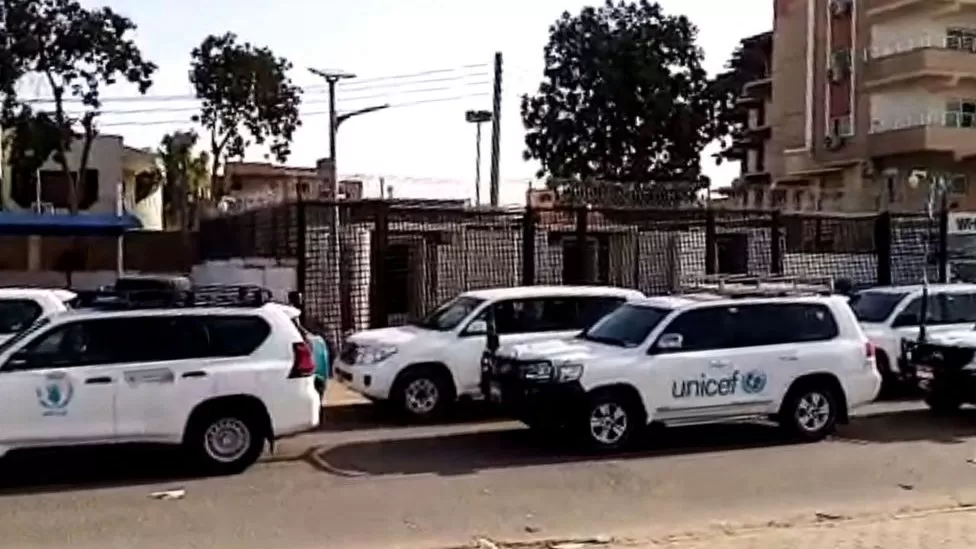Several countries have evacuated diplomats and citizens from Sudan’s capital as fierce fighting continues to rage in Khartoum.
The US and UK announced on Sunday they had flown diplomats out of the country.
Italy, Belgium, Turkey, Japan and the Netherlands said they were also organising evacuations, starting on Sunday.
A French convoy reportedly came under fire while trying to leave the embassy and had to turn back.
Sudan’s regular army and its opponents – a paramilitary force called the Rapid Support Forces (RSF) – blamed each other for the attack.
Speaking to the BBC, French authorities refused to comment on whether an attack had taken place – but they did say that the French military based in Djibouti was involved in the operation and that the aim was to get the evacuees to Djibouti.
The French ministry of foreign affairs said it was also evacuating its citizens and nationals of other EU and allied countries.
US authorities said they had airlifted fewer than 100 people with Chinook helicopters on Sunday morning in a “fast and clean” operation.
In a call with reporters after the mission, Lt Gen Douglas Sims said more than 100 US troops from the Navy Seals and Army Special Forces flew from Djibouti to Ethiopia and then into Sudan, and were on the ground for less than an hour.
Although there is no formal ceasefire, it appears that the RSF agreed not to shoot at the American helicopters during their mission.
The US embassy in Khartoum is now closed, and a tweet on its official feed says it is not safe enough for the government to evacuate private US citizens.
The UK flew diplomats and their families, including some children, out of the country from an airfield outside Khartoum. Other UK nationals still in Sudan have been urged by the government to tell the Foreign Office where they are, but Foreign Minister James Cleverly said options to evacuate them were “severely limited”.
On Saturday, more than 150 people, mostly citizens of Gulf countries, as well as Egypt, Pakistan and Canada were evacuated by sea to the Saudi Arabian port of Jeddah.
Meanwhile, there are reports that internet connectivity has almost totally collapsed in Sudan, which could seriously hinder the coordination of help for those trapped in Khartoum and other cities.
The power struggle has seen heavy bombardment in the capital city, with hundreds killed and thousands more injured.
There have been desperate calls for help from many foreign students – from Africa, Asia and the Middle East – who are also stuck in Khartoum, a city of some six million people.
The near-constant shooting and bombing in Khartoum and elsewhere has cut electricity and safe access to food and water for much of the population.
Several ceasefires that had seemingly been agreed by both sides were ignored, including a three-day pause to mark the Muslim holiday of Eid al-Fitr, which started on Friday.
The World Health Organization says the fighting has killed more than 400 people and injured thousands. But the death toll is believed to be much higher as people are struggling to get healthcare, as most of the city’s hospitals have been forced to close by the fighting.
Along with Khartoum, the western region of Darfur, where the RSF first emerged, has also been badly affected by the fighting.
The UN has warned that up to 20,000 people – mostly women and children – have fled Sudan to seek safety in Chad, across the border from Darfur.
Source: BBC News


